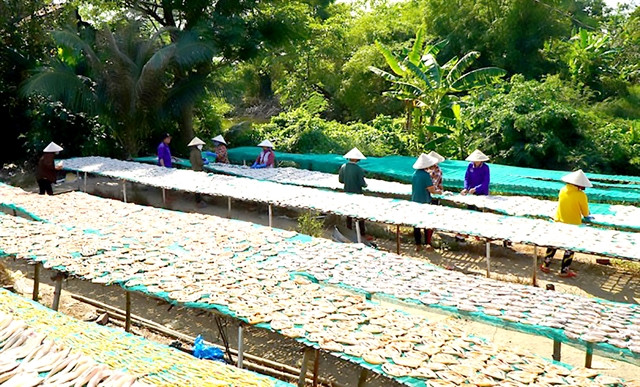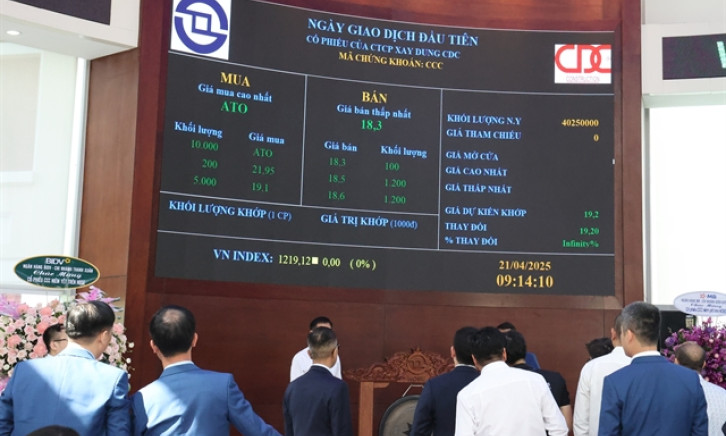Mekong Delta dried fish making villages busy ahead of Tết
To improve value, local authorities have strengthened oversight of the quality of dried fish and trade promotions, and helped producers get their products registered under the country’s “One Commune-One Product” (OCOP) programme.
Villages that specialise in making dried fish in the Cửu Long (Mekong) Delta are busy with Tết (Lunar New Year) production but demand is expected to be low this year.
In Tiền Giang Province’s Gò Công Đông District, households in the dried-fish making village in Vàm Láng Town are increasing production by 50 per cent as usual to meet the demand during Tết, which falls on February 10 this year.
Trần Thị Thu, owner of one such establishment in the village, said she had 26 workers on normal days but increased the number to 40 now.
Her establishment normally produced a tonne of dried short-finned lizardfish, solefish, threadfin bream, and others daily and sold them mostly to HCM City, she said.
Now it had doubled output, she said.
The village establishments together use around 5,000 tonnes of various types of fresh fish a year and produce 1,500 tonnes of dried fish.
But they expect demand during Tết this year to be lower.
In Đồng Tháp Province’s Tam Nông District, Phú Thọ dried-fish making village in the namesake commune is busy with Tết production but demand is down from last year.
Võ Thị Mai, who runs an establishment, said it processed 500kg of fresh fish a day at other times and 700-800kg during Tết.
But demand was down 30 per cent this year and prices were also lower, she said.
According to Nguyễn Văn Nhứt, deputy chairman of the Phú Thọ Commune People’s Committee, local authorities and relevant agencies regularly provide training in food safety for producers and instruct them on how to sell their products on social media and e-commerce platforms.
The village has nearly 200 households that provide jobs to more than 800 people and incomes of VNĐ6-7 million (US$250-280) a month.
In Bạc Liêu Province, Gành Hào dried-fish village in Đông Hải District is expected to produce 40 tonnes of dried fish for Tết.
Besides traditional salted dried fish, the village also makes various types of dried fish marinated with other spices.
Nguyễn Trọng Hán, deputy chairman of the district People’s Committee, said: “Thanks to their deliciousness and reasonable prices, the village’s dried fish are preferred by consumers.”
To improve value, local authorities had strengthened oversight of the quality of dried fish and trade promotions, and helped producers get their products registered under the country’s “One Commune-One Product” (OCOP) programme, he said.
The village had many dried fish products recognised as three-star OCOP products, he said.
In Sóc Trăng Province’s Trần Đề District, Cảng Hamlet in Trần Đề Town is well known nation-wide for making dried marine fish.
With local fishing boats catching less fish this year, the prices of marine dried fish have increased by VNĐ10,000 -50,000 a kilogramme.
The village’s dried fish products are sold mostly in the delta, HCM City and south-eastern region.
Ông Tiến Chương, chairman of the Trần Đề Town People’s Committee, said the coastal town had 410 fishing boats which caught more than 40,000 tonnes of fish and shrimp a year.
It also had 12 dried fish making establishments and dozens of shops selling them, he said.
It planned to develop certain products and bring them into the OCOP programme, he said.
It encouraged small- and medium-scale household producers to form co-operative groups and co-operatives and develop linkages for producing and selling dried fish items, he added.






